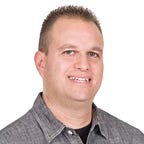Eating Poison and Loving It
What if what you call food is actually poison? Would you still eat it?
Hey storytellers.
Have you ever tried to lose weight and got frustrated that you can’t? Or you can, only to gain it all back and then some?
Well, there is a possible solution and I wouldn’t mention it here if it weren’t tied to storytelling.
This idea hit me while listening to a podcast where the guest described the biological effects of eating fried food.
He shared a study that showed how inflammation caused from eating fried food can remain in the body for up to 48 hours.
The startling contrast to that is how inflammation caused by smoking one cigarette can remain in the body for only 4–6 hours.
Of course, he and the host joked about how much they love french fries and how hard it is to give up those foods. Then the guest said the words that locked me in…
“It’s not food.”
We think of everything we eat as food. But what if we change the story? What if only things that benefit our bodies are food and everything else is, well, something else?
What if we go further with the new story and say that anything that doesn’t benefit our body hurts it?
What do we call that? If it’s not food, what is it?
How about poison?
What’s that? Too extreme, you say?
I’d agree with you if we could all just eat the good stuff and easily stop eating the bad stuff. But we can’t. The bad stuff is addicting.
But it’s bad. Not just fried “food.” All kinds of stuff we eat that we call food simply because we eat it. But if it hurts us, it’s poison.
Poison doesn’t have to instantly kill you. It can simply do harm (and maybe kill you over time).
Cardboard isn’t food, so you don’t eat it. You can eat it, but you don’t. Why? One flap of an Amazon box won’t kill you, but if you ate a ton of cardboard do you think it would be poisonous? I’ll save you the trouble — yes, it would.
What if you decide that fried stuff, simple starches, added sugar…what if you decide those aren’t food either? They’re stuff you can eat, but they’re not food. One won’t kill you, but over time…?
Then the new story becomes, “I only eat food.”
You define food as things that are good for your body. If it’s not good for your body, it’s not food and you don’t eat it (poison).
Binary. 1s and 0s. Black and white. Easy peasy. Bob’s your uncle.
I won’t tell you what’s good for your body and what’s not. Countless experts can tell you that. I’m just here to tell you how to reframe the story you tell yourself about what food is (and isn’t) and how that might help you make lasting progress once and for all.
Thanks for reading.
Want more like this? Try my free newsletter, Behavioral Storytelling,
a free Saturday morning deep-dive on a hot storytelling topic.
Why not follow along on LinkedIn?
Can I offer a talk at your event? Check out my Speaker Packet.
If I can be of any help to you, please reach out.
Cheers and remember, success finds those who tell compelling stories.
